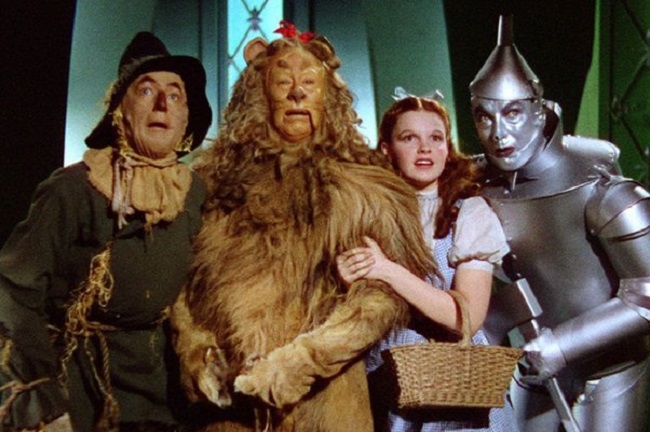 William McKinley, who was born in Niles, was the president of the United States when L. Frank Baum wrote “The Wonderful Wizard of Oz,” one of the most widely read books of the 20th century.
William McKinley, who was born in Niles, was the president of the United States when L. Frank Baum wrote “The Wonderful Wizard of Oz,” one of the most widely read books of the 20th century.
McKinley could have been the “great and powerful” Wizard of Oz, says local McKinley expert and impersonator Mike Wilson.
Who was President When The Wizard of Oz Came Out
Wilson claimed that McKinley didn’t go on the campaign trail in 1896 because of his sick wife, Ida. Many Canton voters would visit him at his home. And every time they did, there was McKinley, the “guy behind the curtain,” waiting for them at the front window.
It was the desire of many Northern and Eastern industrialists for the United States to go on the gold standard that helped elect Republican McKinley over Democratic populist William Jennings Bryan of Nebraska. It was silver that Bryan and his populists in the Midwestern agricultural regions backed, according to Wilson.
L. Frank Baum, a journalist, wrote the book and released it in 1900. Wilson claims that the similarities between the book and the McKinley-Bryan campaign are too striking to be a coincidence, despite the fact that no one asked Baum if the book was based on the race.
As far as Wilson and the other believers in the allegory are concerned, the characters are as follows:
In Wilson’s words, “The Wizard” is any president serving between 1877 and 1917. Gold and silver are typically measured in units called “ounces,” which is short for “ounce.”
The “ordinary person, the person from silver country,” as Wilson put it, is embodied in Dorothy. Also, he mentioned that Baum did not like McKinley, as is depicted towards the end of the article. She said, “Just when she needed the wizard the most, he took off.”
Dorothy had silver slippers in the novel, too. The shoes were originally brown, but were changed to a bright shade of red for the 1939 film adaptation of the book.
Last Words
According to Wilson, Bryan, who was nicknamed the “cowardly candidate” for his “pot shots” at McKinley and subsequent retreat, is the most likely candidate to represent the Cowardly Lion. Bryan, who ran for president in 1896 and again in 1900, was very critical of McKinley following the 1898 Spanish-American War, which Wilson noted brought the United States more deeply into international affairs and led to territorial expansion.
Wilson claimed that entrepreneur John D. Rockefeller would be quite frightened if there were ever to be a shortage of oil, which the Tin Man symbolised;
l The capital city of Washington, DC or New York was symbolised by the Emerald City; The indigenous Native Americans of the Western and Plains states were symbolised by the flying monkeys.












